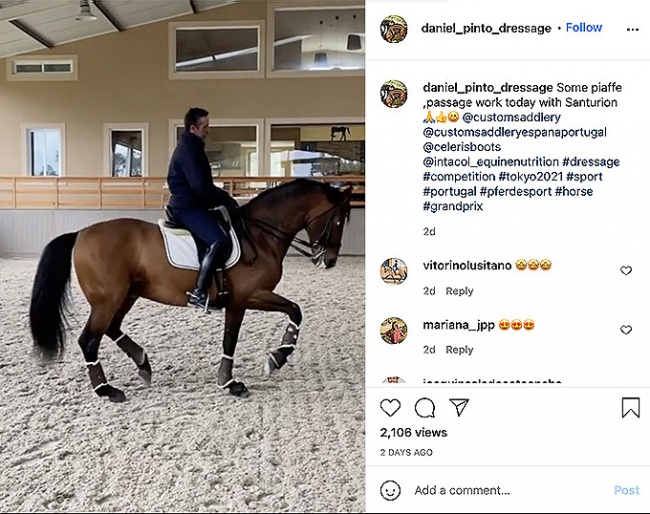
There are many emotive topics that circulate periodically amongst the equestrian community, but none so perpetually divisive as the “h” word – helmets. The FEI’s recent move to ban the top hat in competition was met with a great deal of support, and also with outrage: “it’s the rider’s decision!” “there’s no risk in the arena!”, “we are losing the tradition of our sport!”
Not unlike the response to seatbelts becoming mandatory, and yet, in 2021, we all wear a seat belt without a second thought.
The Age of the Influencer
It is true that the risks to a Grand Prix rider in a dressage arena, on a highly trained horse, are minimal, and perhaps wearing a top hat for those few minutes should be the rider’s choice. But wearing a helmet is not only important in terms of the safety it provides, but the image that it puts out into the world. Never has this been so amplified as it is now, in the age of the Influencer, where a few select riders hold so much persuasive power over the masses that follow them.
Many riders who have a high-profile platform on social media are very conscientious about helmet use: always wearing one in the content they promote, and admirably ensuring that in the case of “one-off” photoshoots in a controlled environment they add a disclaimer that they would usually wear a helmet, and that they recommend doing so.
Flowing Hair
However, there is also a significant minority who refuse to, posting training videos and photos with flowing hair or in a stylish baseball cap. For example, a fun video of them jumping their dressage horse “for the first time” tarnished by a complete absence of head protection. There are several great videos out there (with riders wearing helmets) that amusingly demonstrate that dressage horses are not known for their coordination or the containment of their enthusiasm when faced with a jump for the first time! Not only that, but many of these riders who choose never to wear a helmet will then attack people in the comments who express their concern.
This, in turn, leads to (often younger) fans coming to the rider’s defence, protecting them with angry assertions that “it’s their choice” and “they know their horse”, perhaps in an attempt to achieve recognition and approval from the rider for their support. Do these young, impressionable riders then remove their own helmets in order to create content like their idols? If even one does, is the high-profile rider not at least a little responsible for any consequences?
Responsibility
I am not disputing that it is their choice – just as, technically, it is their choice to look at their phone whilst driving. It is a personal, unnecessary choice that could have disastrous consequences for them, but perhaps more importantly, for those around them. I would argue that if the decision that you are making has the potential not only to harm you, but devastate those close to you, hurt those around you, and spread like ripples to those who know you, then it is not actually your decision to make in isolation.
You have a responsibility to those who love you, and those who follow you. Having an influence on social media is a privilege with a great deal of potential for good – and several perks for those with large platforms. It follows that the role ought to come with an obligation to be responsible, especially if your audience is younger, and perhaps holds you in aspirational regard.
In Privacy
Of course, many riders take the decision to ride without a helmet in privacy – this is a greyer area. It is their lives, their loved ones who might be affected, and their decision to make – it’s likely that they have considered it, and perhaps only do it on horses that they know well, in what they perceive as “low-risk” situations.
But is there ever really a low-risk situation with a horse? I am not saying that we should all wrap ourselves in bubble wrap and hide, but when, for as little or as much money as you would like to spend, in whatever colour or style your heart desires, you can significantly reduce the risks involved in the sport that we all love, why wouldn’t you? Surely it can’t be the fear of hat hair….
Related Links
Daniel Pinto: "Top Hat or Helmet - Shouldn't it be Each Rider's Choice?"
Rebecca Bell: "2021, Tuck Your Fingers in the Neck strap and Sit Tight"
Rebecca Bell: "Living Two Dreams: Oxford and International Dressage - It is Possible"
Rebecca Bell: "New Year's Resolutions"
Rebecca Bell: "Each Attempt Has to Be Totally ‘On Point'"